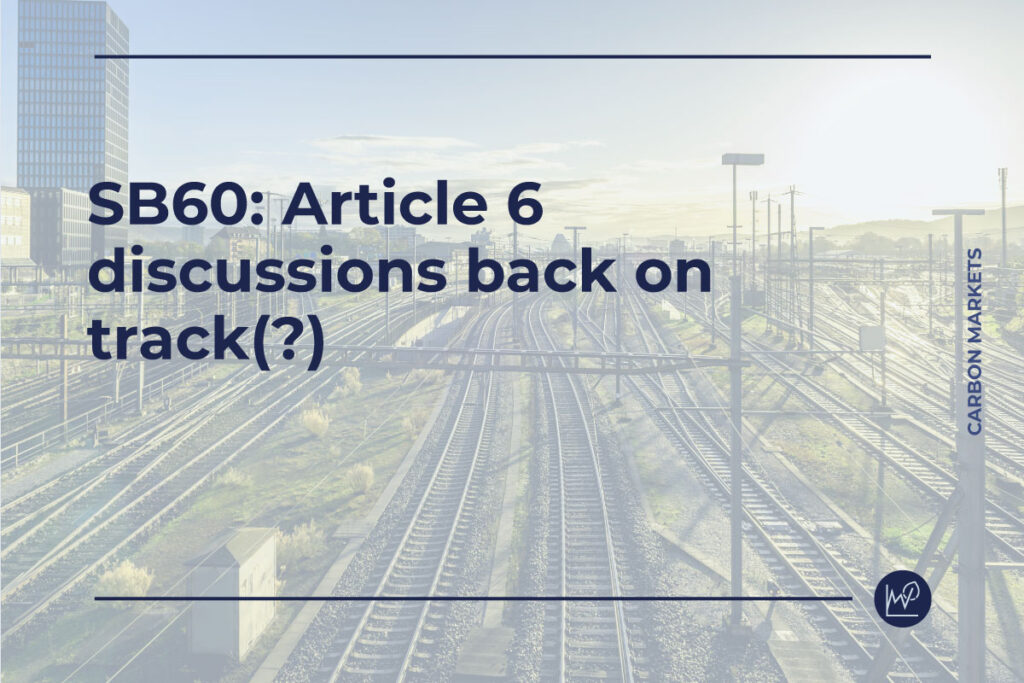Listen to article
Centralists vs decentralists
COP28 highlighted two strands of opinions (at least) with centralists on the one hand arguing for more UNFCCC oversight for cooperative approaches under Article 6.2, and decentralists on the other hand arguing to that UNFCCC should keep its hands off. A clear example of this is the centralists proposals to require a review of a country’s arrangements for participation prior to transferring ITMOs to another country.
This debate continued at SB60 resulting in a text – still quite far from consensus – containing options for details relating to the authorization of cooperative approaches and the use of ITMOs, as well as first transfer (should the transfer be possible to make without a review by an Article 6 review team?).
Behind some of the clashing views is essentially whether cooperative approaches could be unilateral or must include two cooperating countries from the start. Some see that a bilateral agreement underpinning a cooperative approach will guarantee environmental integrity while less faith is put on a unilateral approach where a purchasing country (or corporate) may come in at a later stage. Imposing a review would be one way to address this concern.
However, the Paris Agreement is a bottom-up construct and is largely based on voluntary commitments and transparency. These principles also underpin Article 6. For a centralized approach though, there is the option of using the Paris Agreement Crediting Mechanism (PACM) under Article 6.4 which means an activity cycle and crediting process overseen by the UNFCCC. What Article 6 does is to let buyers and sellers sort things out on the market, letting the reputational risk be a deciding factor where many aim for high-quality carbon credits. Is there a risk for a race to the bottom? Maybe, but regulating cooperative approaches to address all of that risk does not seem to fly if the bottom-up spirit of Article 6.2 is to be retained. On the other hand, this requires transparency so the rules need to promote enhanced transparency.
Emissions avoidance sidestepped
Another issue that was parked at SB 60 is emissions avoidance, and yes, this issue was literally parked since discussions were pushed to 2028. So, what is emissions avoidance? Many would associate with REDD+ and avoided deforestation, i.e., avoiding forest to be cut down thereby keeping carbon in the forest and not being emitted, but there are broader understandings. First, avoidance was a term used for some CDM methodologies for instance in the area of reducing methane emissions. Second, every now and then avoidance emerges as a concept for carbon crediting of not investing in fossil fuel-based power, transport, and industrial applications.
This understanding of emissions avoidance was expressed many years ago when Ecuador proposed to include no drilling for oil as possible mitigation activity for carbon crediting and was raised again this time by the Philippines. While the approach makes intuitive sense, its practical implementation is far from simple and could open doors to vast amounts of carbon credits with dubious integrity.
In any case, whatever the definition of emissions avoidance, it will now not be part of cooperative approaches and the PACM until after 2028, if ever. This leaves avoided deforestation to the voluntary carbon market (without corresponding adjustments) and to result-based finance.




